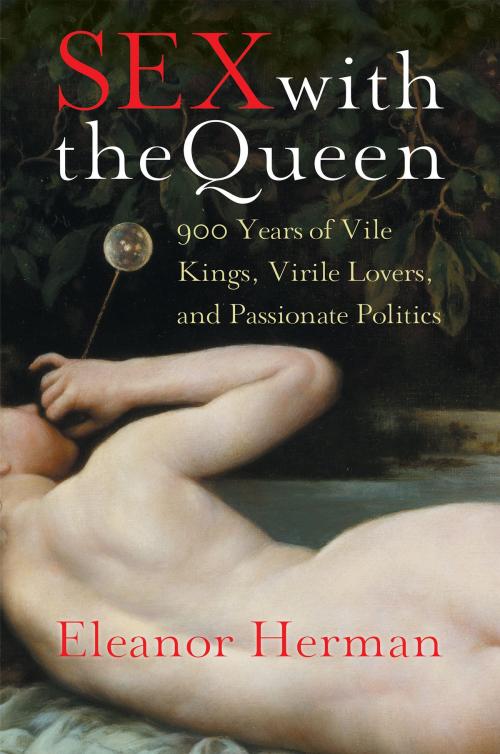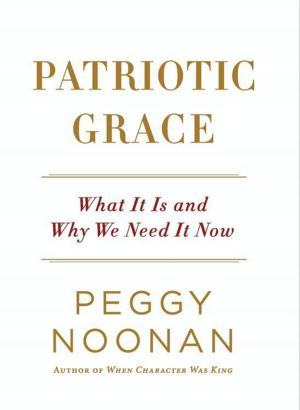Sex with the Queen
900 Years of Vile Kings, Virile Lovers, and Passionate Politics
Nonfiction, History, British| Author: | Eleanor Herman | ISBN: | 9780061751561 |
| Publisher: | HarperCollins e-books | Publication: | October 13, 2009 |
| Imprint: | HarperCollins e-books | Language: | English |
| Author: | Eleanor Herman |
| ISBN: | 9780061751561 |
| Publisher: | HarperCollins e-books |
| Publication: | October 13, 2009 |
| Imprint: | HarperCollins e-books |
| Language: | English |
In this follow-up to her bestselling Sex with Kings, Eleanor Herman reveals the truth about what goes on behind the closed door of a queen's boudoir. Impeccably researched, filled with page-turning romance, passion, and scandal, Sex with the Queen explores the scintillating sexual lives of some of our most beloved and infamous female rulers.
She was the queen, living in an opulent palace, wearing lavish gowns and dazzling jewels. She was envied, admired, and revered. She was also miserable, having been forced to marry a foreign prince sight unseen, a royal ogre who was sadistic, foaming at the mouth, physically repulsive, mentally incompetent, or sexually impotent—and in some cases all of the above.
How did queens find happiness? In courts bristling with testosterone—swashbuckling generals, polished courtiers, and virile cardinals—many royal women had love affairs.
- Anne Boleyn flirted with courtiers; Catherine Howard slept with one. Henry VIII had both of them beheaded.
- Catherine the Great had her idiot husband murdered, and ruled the Russian empire with a long list of sexy young favorites.
- Marie Antoinette fell in love with the handsome Swedish count Axel Fersen, who tried valiantly to rescue her from the guillotine.
- Empress Alexandra of Russia found emotional solace in the mad monk Rasputin. Her behavior was the spark that set off the firestorm of the Russian revolution.
- Princess Diana gave up her palace bodyguard to enjoy countless love affairs, which tragically led to her early death.
When a queen became sick to death of her husband and took a lover, anything could happen—from disgrace and death to political victory. Some kings imprisoned erring wives for life; other monarchs obligingly named the queen's lover prime minister.
The crucial factor deciding the fate of an unfaithful queen was the love affair's implications in terms of power, money, and factional rivalry. At European courts, it was the politics—not the sex—that caused a royal woman's tragedy—or her ultimate triumph.
In this follow-up to her bestselling Sex with Kings, Eleanor Herman reveals the truth about what goes on behind the closed door of a queen's boudoir. Impeccably researched, filled with page-turning romance, passion, and scandal, Sex with the Queen explores the scintillating sexual lives of some of our most beloved and infamous female rulers.
She was the queen, living in an opulent palace, wearing lavish gowns and dazzling jewels. She was envied, admired, and revered. She was also miserable, having been forced to marry a foreign prince sight unseen, a royal ogre who was sadistic, foaming at the mouth, physically repulsive, mentally incompetent, or sexually impotent—and in some cases all of the above.
How did queens find happiness? In courts bristling with testosterone—swashbuckling generals, polished courtiers, and virile cardinals—many royal women had love affairs.
- Anne Boleyn flirted with courtiers; Catherine Howard slept with one. Henry VIII had both of them beheaded.
- Catherine the Great had her idiot husband murdered, and ruled the Russian empire with a long list of sexy young favorites.
- Marie Antoinette fell in love with the handsome Swedish count Axel Fersen, who tried valiantly to rescue her from the guillotine.
- Empress Alexandra of Russia found emotional solace in the mad monk Rasputin. Her behavior was the spark that set off the firestorm of the Russian revolution.
- Princess Diana gave up her palace bodyguard to enjoy countless love affairs, which tragically led to her early death.
When a queen became sick to death of her husband and took a lover, anything could happen—from disgrace and death to political victory. Some kings imprisoned erring wives for life; other monarchs obligingly named the queen's lover prime minister.
The crucial factor deciding the fate of an unfaithful queen was the love affair's implications in terms of power, money, and factional rivalry. At European courts, it was the politics—not the sex—that caused a royal woman's tragedy—or her ultimate triumph.















